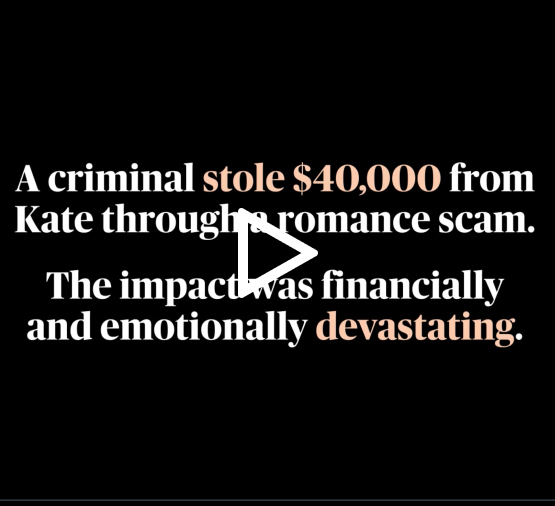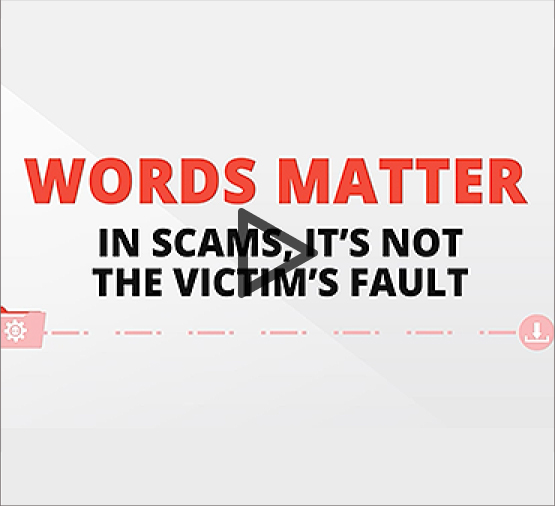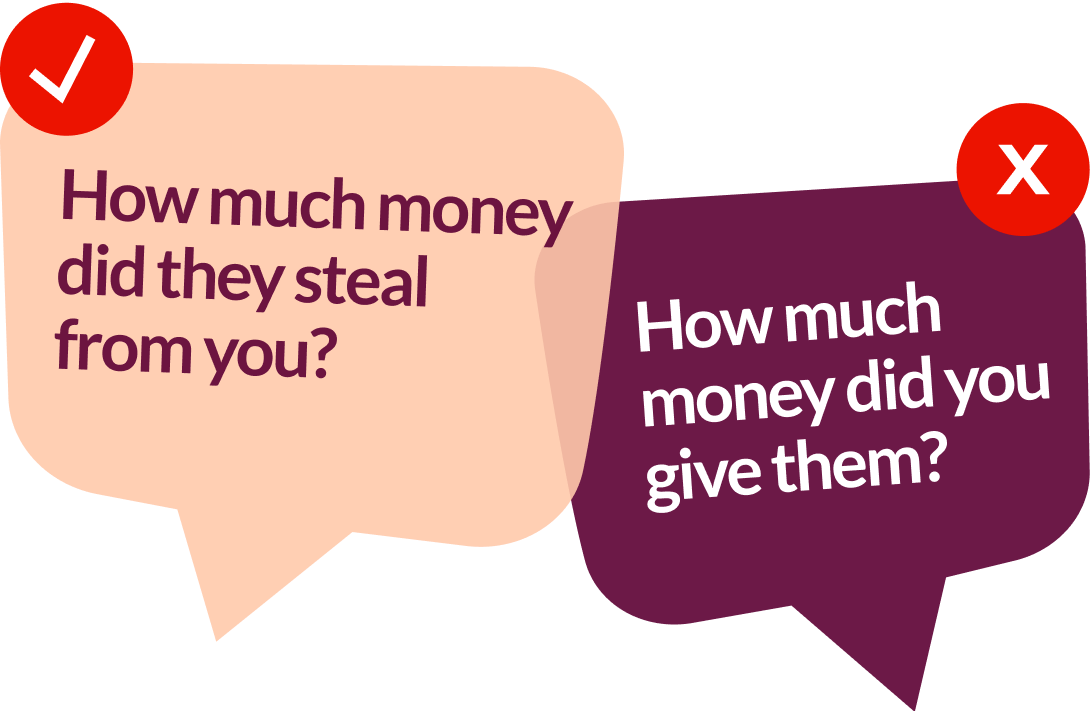Our words matter
when it comes
to fraud.
Your relative or friend didn’t
get duped. It was a crime.
Your relative or friend didn’t
get duped. It was a crime.
Let’s change how we speak about fraud victims.
Criminals steal billions of dollars from consumers every year through fraud. Victims of these crimes can be someone you know like your mom, dad, uncle, aunt or friend. In most cases, the person was trying to help a loved one or solve a problem.
The experience can be financially and emotionally devastating for victims and their families. We often shame the victims of these crimes and blame them for “falling for it,” making their devastation even worse. Let’s put an end to victim blaming and keep the focus on the criminals.
If we used more empathy and support in how we talk to or about fraud victims, the effect could be enormously positive.
Positive outcomes:
- More people will report fraud
- Family relationships will be protected
- Police will take it seriously
- Prosecutors will take more cases
Don’t let victims suffer twice.
Victim blaming can come from strangers, friends or family. It’s important to blame criminals and not the people hurt by fraud. Learn the significance your words can have on victims of fraud.
Here are examples of what to say:
Additional AARP Resources
AARP Fraud Watch NetworkTM
AARP Fraud Watch Network is a free resource for all. With AARP as your partner, you’ll learn how to proactively spot scams, get guidance from our fraud specialists if you’ve been targeted and feel more secure knowing that we advocate at the federal, state and local levels to protect consumers and enforce the law.
AARP also provides resources for professional audiences.

Are you an AARP Member?
If you are, you can save on shipping, wireless service and more. Plus, tools to help you keep track of your finances, tips to help you spot and avoid scams and access to unique AARP articles, podcasts and special reports selected just for AARP members. Learn how today.













